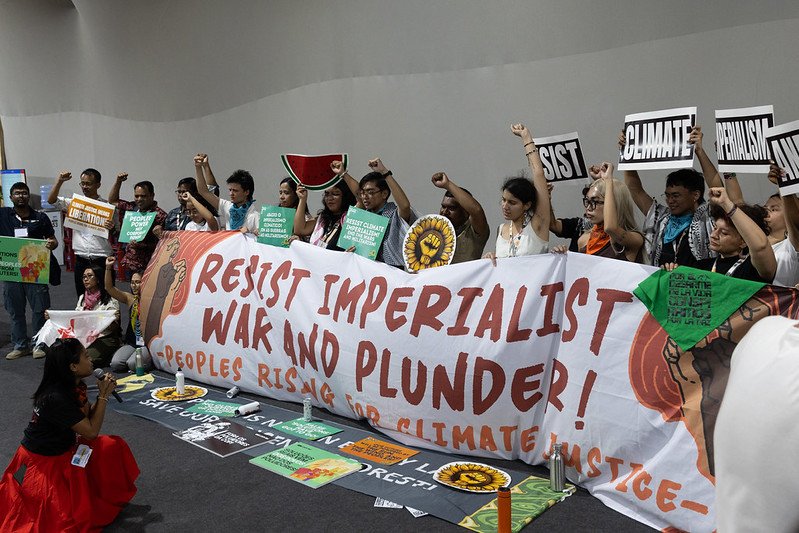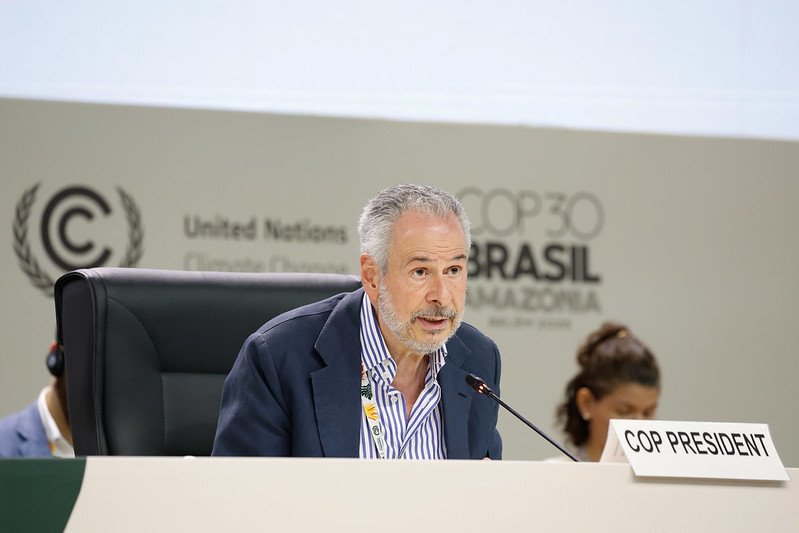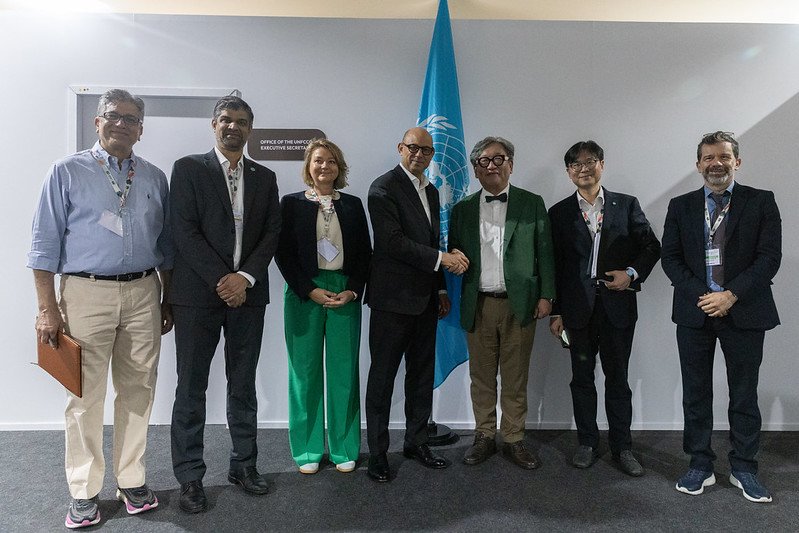
Dhaka, 15 November 2025 (EP Desk) — Day 5 of COP30 marked a decisive escalation in both negotiations and political pressure, as parties entered the first full round of drafting. With new negotiation texts emerging and ministers beginning to arrive in Belém, the tone shifted unmistakably from cautious dialogue to high-stakes bargaining.
Draft Texts Surface in Key Negotiation Tracks
Multiple negotiating groups released early “non-paper” or “0-draft” texts—none negotiable yet, but all signaling what the final week could look like:
1. Mitigation Work Programme (MWP)
• The initial text calls for “accelerated fossil fuel transition in line with 1.5°C pathways,” but leaves open whether this will be labeled as phaseout, phasedown, or transition.
• Several developed countries pushed for referencing unabated fossil fuels, while many developing countries rejected what they called “loophole language.”
2. Article 6 (Carbon Markets)
• Negotiations remain gridlocked. A new informal note proposes stricter rules for crediting methodologies and transparency.
• Brazil, the COP host, urged parties not to reopen the Paris Agreement text, warning this could “collapse the entire Article 6 work.”
• A growing group of countries is calling for a moratorium on questionable carbon offset practices.
3. Climate Finance Reset Track
• A preliminary “options text” outlines three possible pathways for the post-2025 finance goal, ranging from USD 600 billion/year to over USD 1.3 trillion/year in combined public and private flows.
• Developing countries reiterated: the figure must reflect public, grant-based, and predictable finance — not repackaged loans.
• No consensus yet on integrating “historic responsibility” into the finance framework.
4. Adaptation & Loss and Damage
• Discussions on operationalizing the Loss and Damage Fund showed little movement.
• Several vulnerable nations warned that “the fund risks becoming symbolic without real capital.”

COP Presidency Briefing: Urgency and Pressure
At the mid-day briefing, COP30 President André Corrêa do Lago said: “We now move from exploration to negotiation. Drafts are on the table. The political choices cannot be delayed any longer.”
Key points from the Presidency:
• Ministerial pairs will be appointed within 48 hours to unlock stalled tracks.
• The Presidency will release the first consolidated negotiation text (“1st iteration”) by Day 7.
• On protests and access issues, the Presidency said it is working to ensure “full participation” amid heightened demonstrations around the venue.
Growing Tensions Inside the Venue
Delegates reported long informal huddles—especially around finance and Article 6—while civil society groups staged a major march inside the Blue Zone calling for:
• A fossil fuel phaseout with no loopholes
• Debt cancellation and grant-based finance
• A global ban on dangerous offsets
Key Side-Events on Day 5
1. Climate Finance Reset Dialogue – High Ambition Session
Experts from MDBs, UN agencies, and finance ministries debated system-wide reform. Major takeaways:
• Calls intensified for a new global tax package (on aviation, shipping, fossil profits).
• A proposal emerged for an Independent Climate Finance Accountability Panel to track real money vs. “creative accounting.”
• African and Pacific leaders demanded that debt restructuring become part of the new finance goal.
2. Amazon & Indigenous Rights Forum
Held at the Amazon Pavilion, Indigenous guardians from Brazil, Colombia, and Peru issued a unified declaration: “Without protecting the defenders of nature, you cannot protect the Amazon.”
They urged COP30 to include a reference to Indigenous land rights in the final cover decision.
3. Cities & Regions Leadership Coalition
Local governments called for direct access to climate finance and showcased sub-national mitigation strategies. A new network of Amazon-region mayors committed to climate-positive development pathways by 2035.
Analysis: The Negotiation Landscape Hardens
Observers describe Day 5 as the moment where:
• Finance became the master issue, influencing every track.
• Fossil fuel language re-emerged as the sharpest political fault line.
• Global South unity strengthened, especially on grants and debt relief.
• Trust deficits deepened due to slow Loss and Damage progress.
What to Watch on Day 6
• Will the Presidency’s informal consultations narrow down finance options?
• Will Article 6 survive the week without collapsing into procedural stalemate?
• Can parties agree on a landing zone for fossil fuel language before ministers take over?
• Will any major pledges come from developed countries to rebuild trust?

The fifth day of COP30 ended with measurable technical progress but no major political breakthroughs. Several key negotiation tracks — including mitigation, adaptation, climate finance, and carbon markets — released updated draft texts, offering a clearer picture of where consensus may be possible and where the deepest divisions remain.
Despite advances in text consolidation, core political disagreements persist. The most sensitive issues — the future of fossil fuels, the scale and structure of the new global climate finance goal (NCQG), and the integrity of carbon-market rules under Article 6 — remain unresolved and heavily bracketed. Developing countries continue to demand predictable, grant-based finance and strong commitments on fossil-fuel phase-out, while developed countries are reluctant to commit to firm targets, citing domestic constraints.
Side events intensified pressure on negotiators, as civil society, vulnerable nations, and climate-justice groups reiterated that incrementalism is no longer viable. Meanwhile, the COP Presidency acknowledged progress in crafting texts but emphasized the need for immediate high-level political engagement to bridge remaining gaps. Ministerial consultations beginning on Day 6 are now expected to determine whether COP30 can deliver outcomes aligned with the 1.5°C pathway.
In sum, Day 5 concluded with momentum but no guarantees: the technical work is largely done, the political work has just begun, and the success of COP30 now hinges on the ability of ministers and heads of delegation to convert drafts into durable agreements that match the urgency of the climate crisis.



